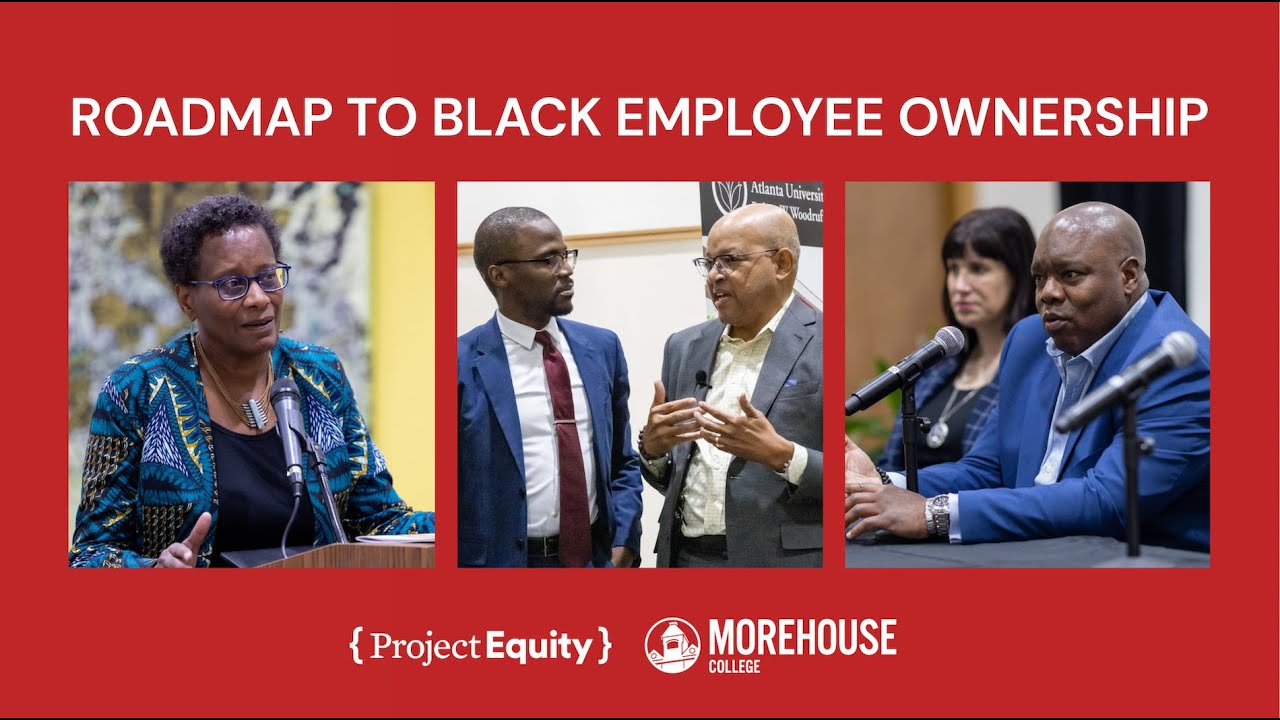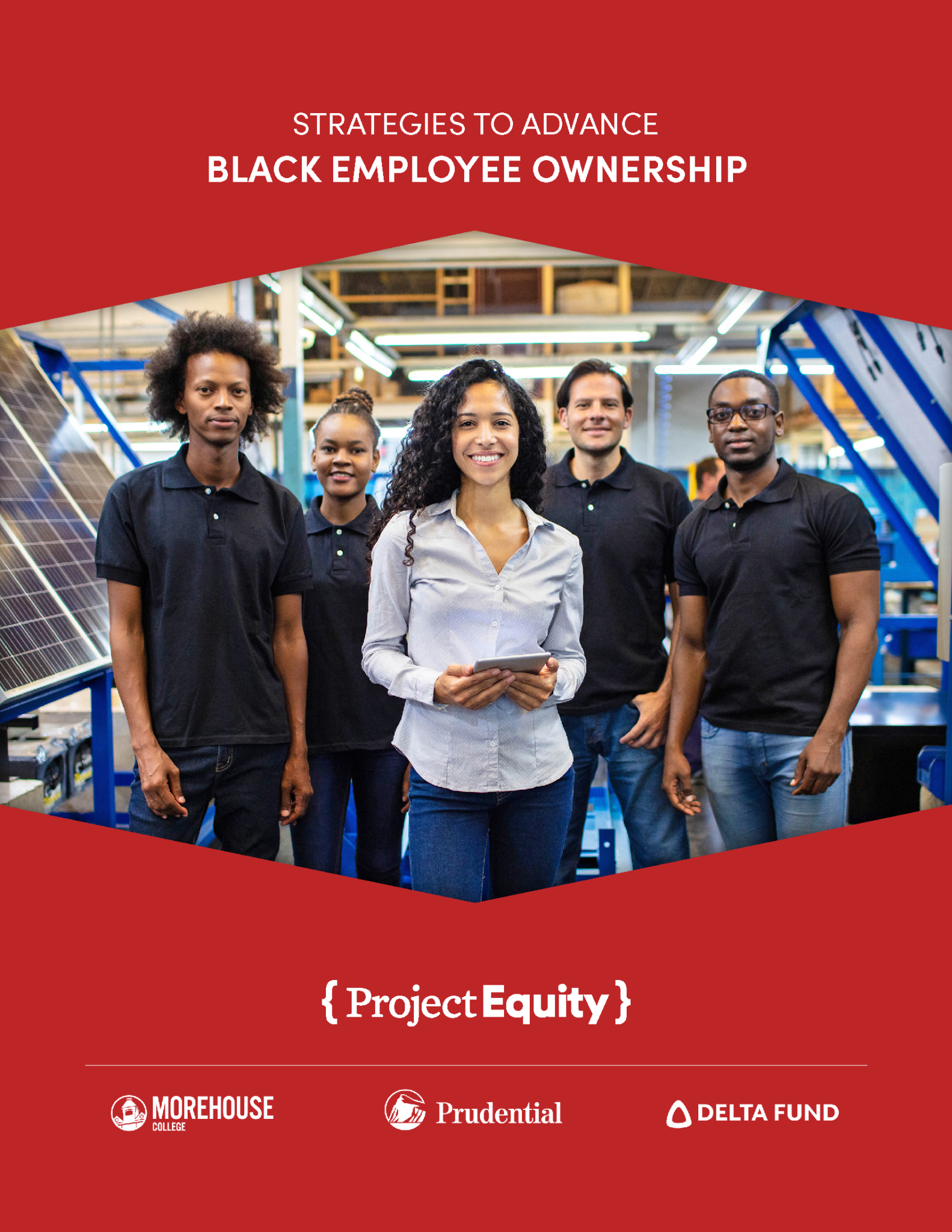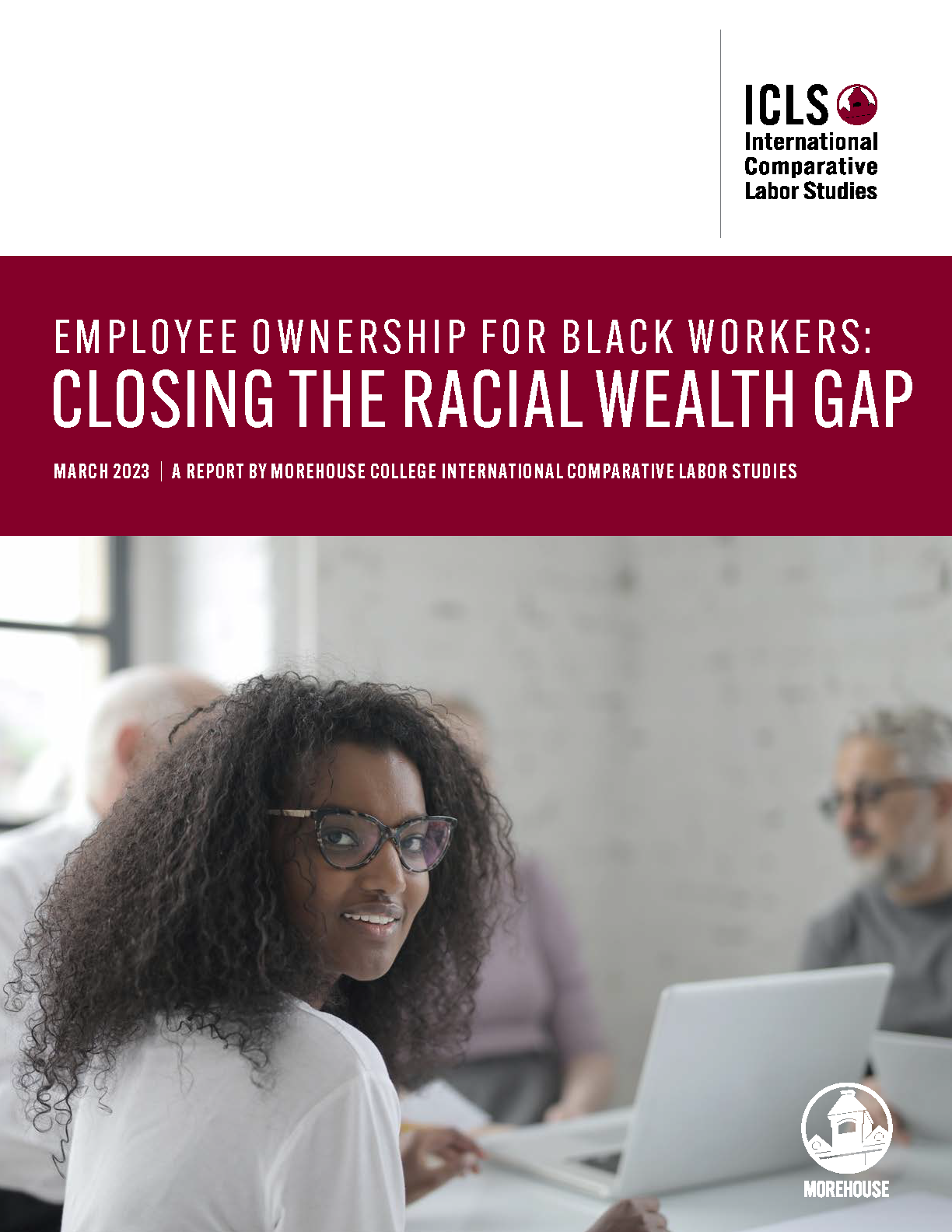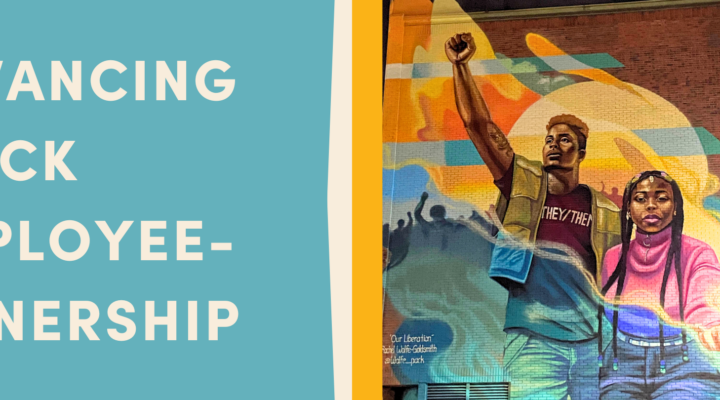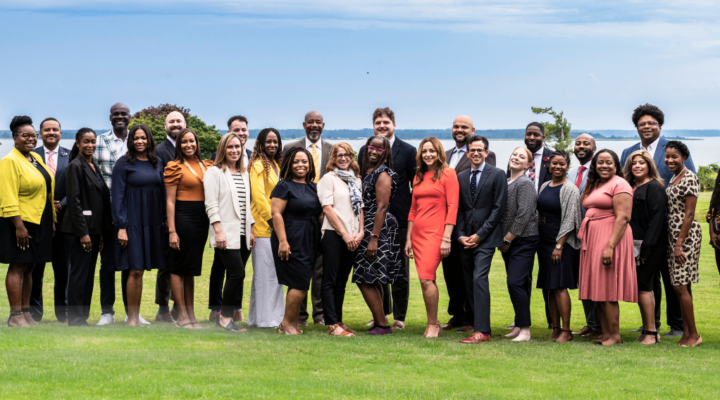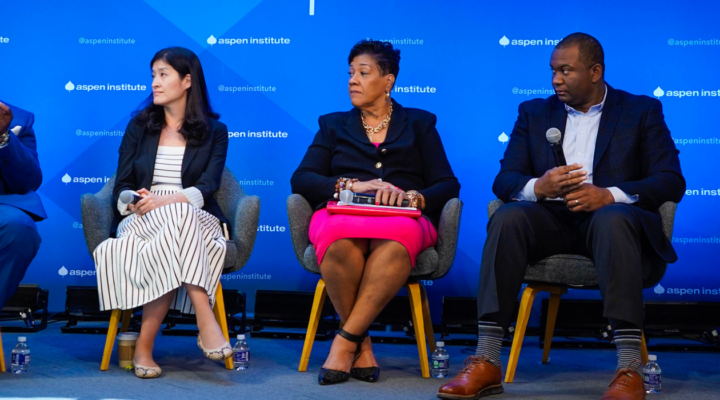Broad-based employee ownership sustains quality jobs and builds wealth for employees. It creates stronger and more profitable businesses and preserves the legacy and wealth of small businesses in communities. Project Equity’s publication, Strategies to Advance Black Employee Ownership Employee Ownership offers strategies and practical considerations to advance Black employee ownership as a complement to the Morehouse College paper, Employee Ownership for Black Workers: Closing the Racial Wealth Gap. The paper suggests those strategies should focus on these goals:
- Preserving Black wealth for Black business owners through EO transitions
- Creating Black wealth by transitioning companies with significant Black workforces (regardless of ownership demographics) to employee ownership
- Helping Black-owned micro businesses grow so those that want to consider EO will be ready
- Investing in long-term, high-touch development approaches for startup cooperatives
